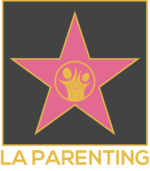Equal Custody After Divorce Not Always Best for Children
After divorce, sharing custody of children can often be a contentious proposition, but according to family law attorney Mark Baer, it does not have to be, and it should not be, for the sake of the children involved.
Baer, who practices in Pasadena and Los Angeles areas, rejects the title of “divorce lawyer” in favor of “family law mediator,” as he subscribes to a progressive movement in his field which focuses on resolving the conflicts between parents without the specter of litigation.
“The litigation model that attorneys are taught is adversarial by nature. It often exacerbates the situation and makes trust issues worse. I deal in constructive ways to deal with conflict,” said Baer. “First you need to build trust between the parties by tackling the easiest stuff first, then you move on once you have the ability to make agreements.”
Together, for the Kids
Termed constructive family law, or integrative family law, Baer’s method always focuses on the wellbeing of the children as the priority. Baer’s resolutions, while certainly not illegal, may not always be supported by law. In his view, the resolution reached in a court according to law might not be appropriate for a particular family dynamic. For example, an equal-time ruling may be what the law ordered, but it might not be in the best interest of the child.
“A fifty-fifty custody arrangement may not always be the best arrangement. A child may have not bonded with a parent, and after divorce they are forced to spend 50 percent of their time with that parent,” said Baer.
Likewise, just because the law says that a parent has the freedom of speech to bash a child’s other parent, as a recent case held out, the respectful, responsible way to act as a parent is to not make derogatory remarks about a former spouse to a child. In this situation, the trash talk not only puts a child in the middle of his or her parent’s conflict, it usually backfires, as a child resents the parent who disparages the other parent whom the child also loves.
What’s Mine is Ours
To help parents come together in making the best custody decisions for their children, Baer says seemingly small things like terminology can make a difference. When a parent says, “our child” instead of “my child,” and avoids talking in terms of their “rights” to a child, tensions can melt away, as both parents realize the child is part of both of them and that the child’s rights are of highest importance.
Similarly, Baer urges parents to view the needs of the child before the rights of the parent or the needs of the parent, so that a child does not become a trophy or property that parents fight over, ignoring what is best for the child.
Sorry is the Hardest Part
Though the marriage has ended, Baer advices couples to heal their relationship, often by taking personal responsibility for their part in the failure of the marriage.
Often an apology and forgiveness goes a long way in mending a relationship and begins the process of healing, for the good of the children. This holds true especially in situations where there has been an affair in the marriage, and the injured party tries to punish the guilty parent by withholding custody.
“An affair is between adults. It should not be used to prevent a parent from having a relationship with a child,” says Baer.
While an affair is, “irrelevant to law,” says Baer, “Once there is an apology, there can be forgiveness, and the emotional posturing is gone.”
Baer laments that the current legal system is “terribly flawed,” but he is heartened that more divorcing couples are seeking constructive family law as a way to deal with the aftermath of a failed marriage and taking the matter of custody into their own hands for the best outcome for the children, instead of leaving it up to litigation and the courts.
“You know your kids, yourself and your spouse. Is it up to you or your attorney to decide what’s best?

